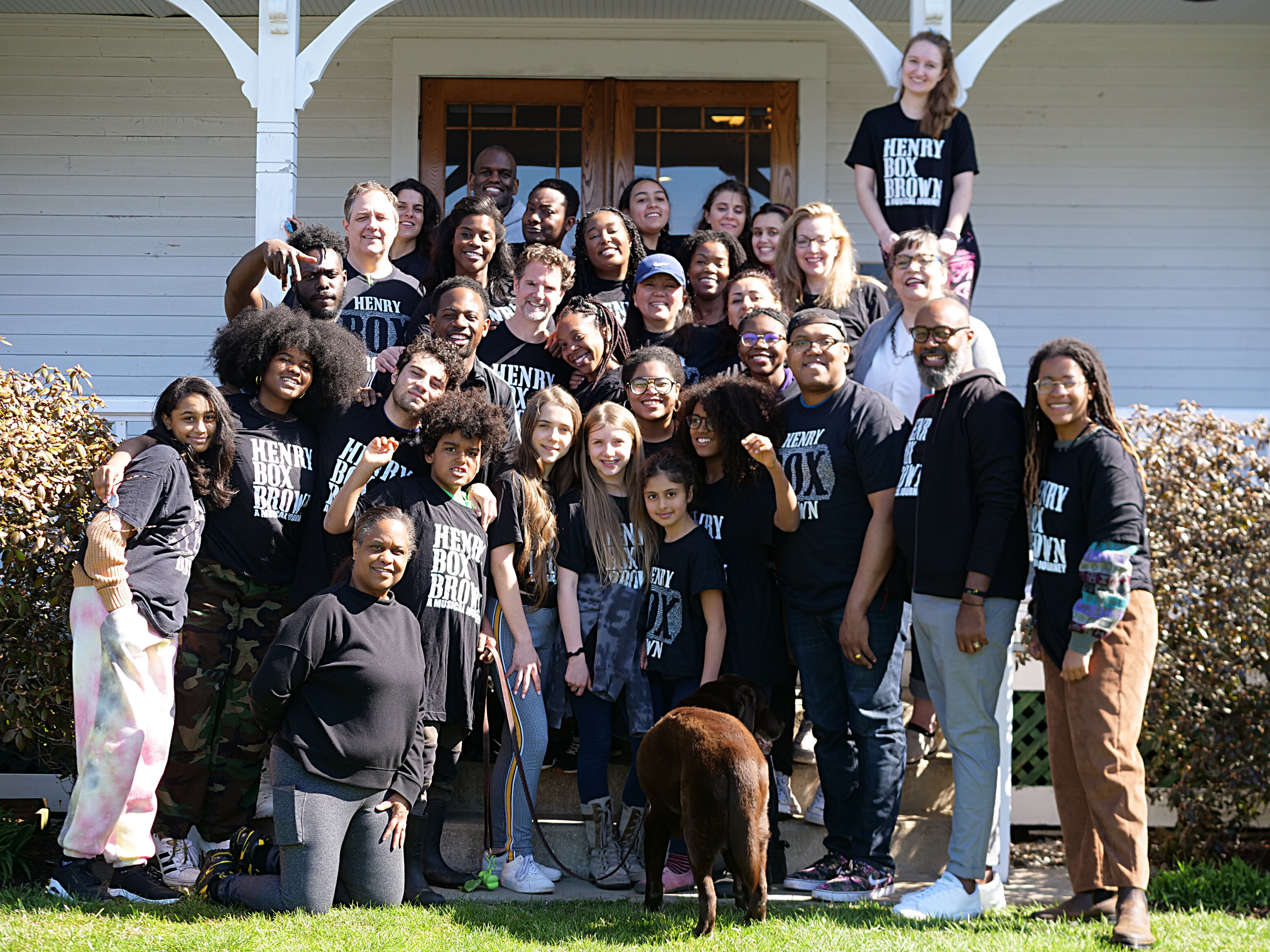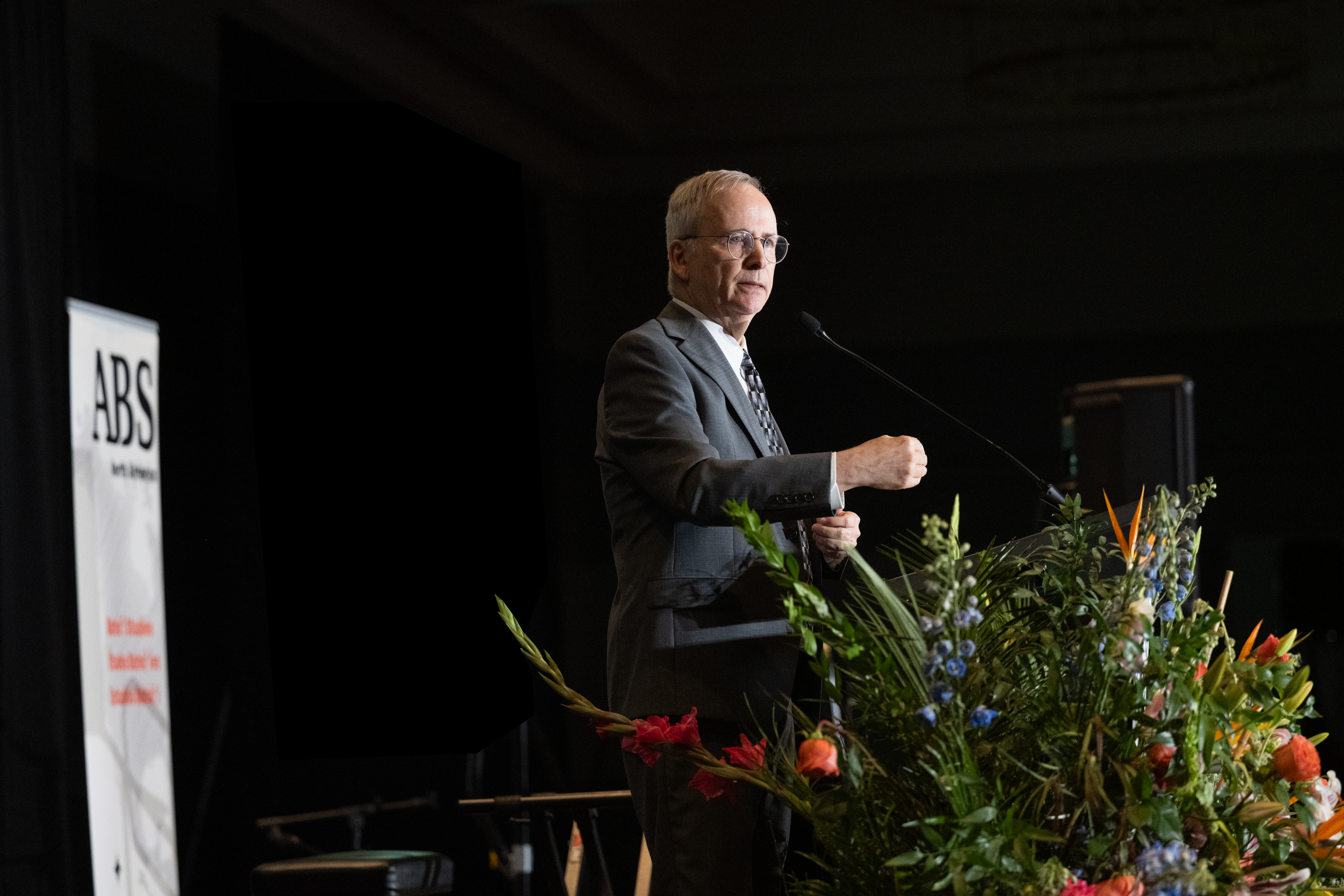
Baha’i Chair at University of Maryland explores avenues to peacemaking
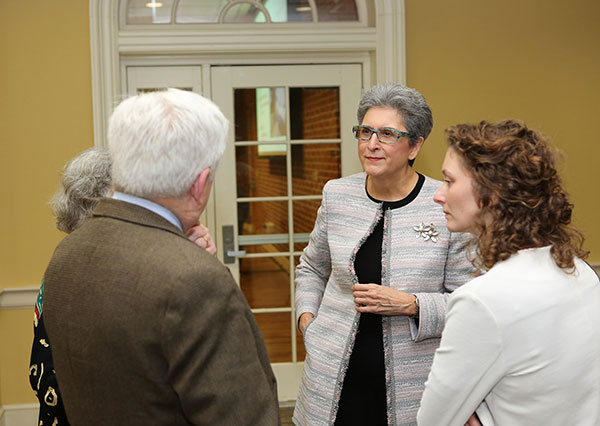
What is meaningful peacemaking, and how can it benefit from a discourse that embraces both religious insights and scientific methods?
As the Baha’i Chair for World Peace enters its 27th academic year at the University of Maryland, College Park, it continues to apply education, research and publications to an “integrative approach” to the needs of building durable peace, with all the opportunities and obstacles found on that path.
“Searching for solutions to intractable social problems that are barriers to peace is the highest aim of the Baha’i Chair,” observes Hoda Mahmoudi, the professor serving as its director.
The Chair organizes conferences, lectures and symposia on the UMD campus, featuring an array of scholars and practitioners gaining insights into the possibilities for dissolving those barriers.
For instance, public programs planned for this fall will highlight women in leadership roles, the intersection of science and religion, environmental health and justice, and young men on the margins of families and the workforce.
The Chair’s work addressing racism in multiple forums has received numerous honors within the university. The honors seminar “The Problem of Prejudice,” taught by Mahmoudi, has been recognized with the Outstanding Honors Faculty Award. Its continuing contributions to the discourse addressing structural racism were cited when the university honored the Chair with a Social Justice Day award at an April 11 ceremony.
When the UMD President’s Commission on Ethnic Minority Issues (PCEMI) gave the Chair its 2017 Non-Instructional Unit Service Minority Achievement Award, the award letter noted: “Your programming has been rigorous and relevant to ethnic minority issues and you have made it widely available.”
Studying prejudice, global governance
In the classroom, the Chair’s honors seminars give students a space to examine such issues as prejudice and global governance, and to create their own research and social projects to tackle those challenges.
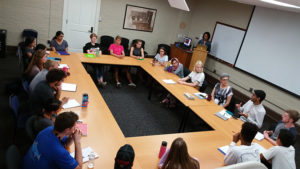
Students in “The Problem of Prejudice” have commented that it “always required me to think more intensively about what has been occurring in our country”; “The approach to dealing with prejudice is no easy task. However, this class made me hopeful for the future”; and “This was my absolute favorite class I took this semester. It has completely changed how I think about the world.”
Reflecting on the class “Global Governance or World Government?” taught by Kate Seaman, the Chair’s assistant director, students commented, “[I] found the group discussions the most valuable. It was really helpful and eye-opening to hear other students’ perspectives on global issues”; and that “The class went much deeper into issues like climate change,” prompting them to “think deeper and more critically.”
Founded in 1993, the Baha’i Chair is an academic program endowed by the National Spiritual Assembly of the Baha’is of the United States. It studies major issues of the gradual unfoldment of world peace as presented in “The Promise of World Peace,” a 1985 document from the Universal House of Justice, the world governing council of the Baha’i Faith.
Five central themes
Inspired by that statement’s vision of humanity as fundamentally having a spiritual yearning for peace, and of peace as a complex, all-embracing planetary process, the Chair says this area of study “calls for a comprehensive approach.” So it orients its learning process to five central themes drawn from the peace statement:
- Structural racism and the root cause of prejudice.
- Human nature.
- Empowerment of women and peace.
- Global governance and leadership.
- Overcoming global environmental challenges.
With that framework of insights, the Chair aims to build “a body of rigorously derived and tested knowledge that can be applied to foster the emergence of a just, secure and sustainable international order, one that addresses the social, material and spiritual progress of the global community,” Mahmoudi states.
Associated publications set out fruits of the Chair’s research and connection-building. For example, a book released in spring 2019, Children and Globalization: Multidisciplinary Perspectives, was edited by Mahmoudi and University of Texas professor Steven Mintz. An American Sociological Association publication recently included Mahmoudi’s article “Freedom and the Iranian Women’s Movement.” A second book will be released this November: Interdisciplinary Perspectives on Human Dignity and Human Rights, edited by Mahmoudi and Michael Penn of Franklin and Marshall College. Another book is in progress, addressing structural racism.
Representatives of the Chair also share papers and presentations at international-scale scholarly and social justice gatherings, including the International Studies Association Annual Meeting, as well as such Baha’i-sponsored venues as the Association for Baha’i Studies–North America annual conference and the Arab American Conference.
Other events where Mahmoudi has made presentations include a workshop hosted in 2017 by New York University Abu Dhabi and sponsored by the NYUAD Institute, titled “Tolerance in the UAE: Histories and Reflections on Religious Tolerance and the Modern Nation-State.”
Visible events on campus
More visible, though, and often engaging hundreds within the University of Maryland community are the dozens of events the Chair organizes each year. They have helped the Chair build relationships with academics worldwide and within the university itself who are working on research and solutions to the challenges of global peace.
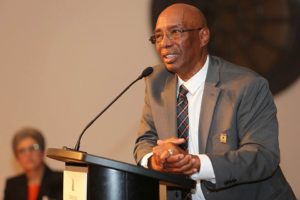
Last year’s Baha’i Chair Annual Lecture, “Deconstructing Race/Reconstructing Difference,” brought in 370 people for its presentation by Jabari Mahiri, professor of education at the University of California, Berkeley. Working with the Critical Race Initiative, the Chair also sponsored symposia on “Be the Solution: Interrogating Structural Racism” and “Prince Georges County Rising: Strategies for Equitable Development and Prosperity” that drew on UMD faculty, concerned community members and students.
Events on its other themes also drew significant engagement on campus and beyond. An October 2018 conference “Future of Humanity: The Challenge of Global Peace and Security” brought in 15 scholars and experts from around the world. This year a conference on “Infrastructure and Happiness” brought together diverse scholars and practitioners to explore complex factors in planning and operating cities that can influence people’s happiness in and around the city.
Shared values and positive pathways
Though conceived and endowed by a Baha’i institution, the Baha’i Chair aims for a universal approach — to identify “shared values and positive pathways toward developing an equitable and just social order,” according to a statement from the Chair’s “Year in Review” newsletter.
Reinforcing that mission, much of the contribution to its work comes from scholars who are not enrolled members of the Baha’i Faith. This includes Kate Seaman, who joined the Chair in 2016 and works with Mahmoudi to coordinate events, research and publications.
“All of the issues that the Chair is working on are crucial to moving the world in a more peaceful direction,” Seaman says, adding, “It is a real pleasure to work for an organization that is pushing for change, and works hard to bring together a diverse range of voices to discuss the challenges we face and how we can overcome them.”
Going forward, the Baha’i Chair at the University of Maryland is eager to expand its work by increasing the number of publications and events and expanding its engagement with the wider local, national, and international community.
“Sustaining an academic program as unique, dynamic and vital as the Chair is even more important in a world that is increasingly divided,” Mahmoudi notes. “To do this we need to continue to engage and amplify a diverse range of voices and perspectives about achieving global peace, and continue to push for new ideas and innovative solutions to the global challenges we face.”
Fall 2019 events
All the following events are on the University of Maryland campus are free and open to the public. For more details on the below events, and an up-to-date schedule of lectures, conferences, symposia and other events sponsored by the Baha’i Chair for World Peace, go to www.bahaichair.umd.edu/events
Sept. 24–25: Conference — “Women in the World: Time for a New Paradigm for Peace.” With speakers from multiple nations representing the fields of law, sociology, psychology, African American studies, conflict resolution, political science and more.
Oct. 10: Baha’i Chair Annual Lecture — Alondra Nelson, chair of the School of Social Science at the Institute for Advanced Study; formerly dean of social science at Columbia University and faculty at Yale University.
Oct. 24: Lecture — “Environmental Racism and Slavery in 21st Century Jim Crow America: Stories of Resistance, Hope, and Change” with Sacoby Wilson, associate professor with UMD’s Maryland Institute for Applied Environmental Health, expert on environmental justice and pollution/health risks for residential populations and urban fisherfolk.
Nov. 12: Lecture — “Man Up? Toxic Masculinities and the Health of Men, Women, and Children” with Kevin Roy, associate professor of family science in UMD’s School of Public Health, expert on fatherhood research and the life course of young men on the margins of families and the workforce.
All the following events are on the University of Maryland campus are free and open to the public. For more details on the below events, and an up-to-date schedule of lectures, conferences, symposia and other events sponsored by the Baha’i Chair for World Peace, go to www.bahaichair.umd.edu/events
Sept. 24–25: Conference — “Women in the World: Time for a New Paradigm for Peace.” With speakers from multiple nations representing the fields of law, sociology, psychology, African American studies, conflict resolution, political science and more.
Oct. 10: Baha’i Chair Annual Lecture — Alondra Nelson, chair of the School of Social Science at the Institute for Advanced Study; formerly dean of social science at Columbia University and faculty at Yale University.
Oct. 24: Lecture — “Environmental Racism and Slavery in 21st Century Jim Crow America: Stories of Resistance, Hope, and Change” with Sacoby Wilson, associate professor with UMD’s Maryland Institute for Applied Environmental Health, expert on environmental justice and pollution/health risks for residential populations and urban fisherfolk.
Nov. 12: Lecture — “Man Up? Toxic Masculinities and the Health of Men, Women, and Children” with Kevin Roy, associate professor of family science in UMD’s School of Public Health, expert on fatherhood research and the life course of young men on the margins of families and the workforce.


